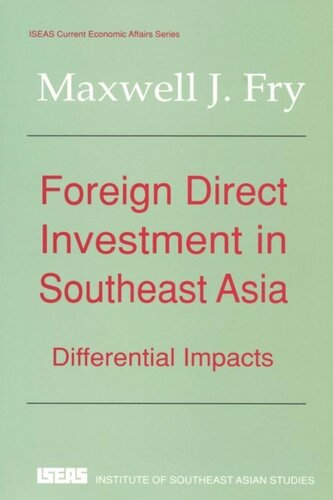

Most ebook files are in PDF format, so you can easily read them using various software such as Foxit Reader or directly on the Google Chrome browser.
Some ebook files are released by publishers in other formats such as .awz, .mobi, .epub, .fb2, etc. You may need to install specific software to read these formats on mobile/PC, such as Calibre.
Please read the tutorial at this link: https://ebookbell.com/faq
We offer FREE conversion to the popular formats you request; however, this may take some time. Therefore, right after payment, please email us, and we will try to provide the service as quickly as possible.
For some exceptional file formats or broken links (if any), please refrain from opening any disputes. Instead, email us first, and we will try to assist within a maximum of 6 hours.
EbookBell Team

0.0
0 reviewsBy analysing foreign direct investment (FDI) in a macroeconomic framework, this study throws new light on various channels through which FDI influences saving, investment, growth, and the balance of payments on current account. The finding that FDI has differential impacts in a sample of five Southeast Asian and eleven other developing countries leads to several policy conclusions. First, FDI is attracted for privatization or debt-equity swap programmes, it may provide additional or alternative balance-of-payments support, but will not accelerate capital formation or economic growth. Second, in the presence of financial and trade distortions, FDI can remove from the host country more that it contributes. In other words, it can be immeserizing. Third, the most efficacious way of encouraging FDI is to implement policies that generally improve the investment climate. Where domestically financed investment is booming, FDI will seek to participate. Finally, maximum benefit from FDI can be achieved in open economies that are free of domestic distortions such as financial repression and trade controls.